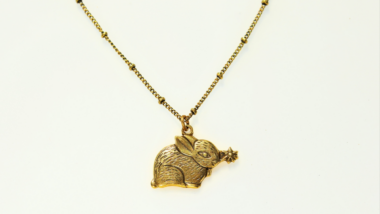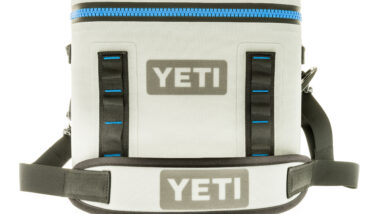Top Class Actions’s website and social media posts use affiliate links. If you make a purchase using such links, we may receive a commission, but it will not result in any additional charges to you. Please review our Affiliate Link Disclosure for more information.
Product liability refers to the liability of any or all parties along the distribution chain of a product for damage caused by that product. Product liability claims can be brought against retailers, distributers and manufacturers in various domains, from the automotive industry to pharmaceuticals.
Importantly, product liability claims can be made in contract law or in tort, otherwise known as negligence claims. In this article, we will examine product liability under contract law.
In common law provinces, Sale of Goods legislation infers certain conditions for contracts of sale. These conditions must be met by the seller, who risks liability where the following implied conditions are not met:
- The goods are fit for a specific purpose; and
- The goods are of merchantable quality.
However, in order to advance a claim under Sale of Goods legislation, you must first establish a contractual relationship between yourself and the seller. For example if you buy a vehicle with faulty airbags from a dealer, you can only sue the dealer under contract law. You cannot sue the manufacturer of the airbags, because you did not contract with the manufacturer. The dealer, on the other hand, can rely on the legislation to sue the party from whom it directly purchased the product.
Implied Conditions and Warranties in Product Liability
Typically, implied conditions and warranties are not granted under common law Sale of Goods legislation. However, the exceptions to this rule arise when:
- The buyer expressly or implicitly informs the seller of the particular purpose for which the goods are required, demonstrating that the buyer relies on the seller’s skill or judgment; and
- The goods are normally supplied in the seller’s course of business.
Where goods are bought by description, such as buying sporting equipment via an online add, there is an implied condition that the goods will correspond with the description and be of “merchantable quality.” Usually, this rule only applies to commercial sellers, such as a sporting goods retailer, as opposed to an individual selling old ski equipment on Kijiji.
“Merchantable quality” refers to commercially saleable goods under the description by which they are sold. Likewise, it means that the goods perform to the reasonable expectations of the average buyer.
For example, a recent class action lawsuit was brought against Tesla for breach of guarantee obligations toward Tesla Model 3 owners. Vehicle owners experienced “premature deterioration of the paintwork on Tesla Model 3 vehicles,” which was not covered under Tesla’s warranty. In this case, Tesla may have breached its warranty by selling a vehicle that could not be reasonably expected to perform due to its defects.
Nevertheless, there is an exception to the “merchantable quality” condition and that is where the buyer examines the goods prior to purchase. For example, this condition will not exist where you showed up to the dealer and examined the vehicle in regard to defects that would have been revealed through your examination. On the other hand, where you inspect a product and the examination would not have revealed the defects in question, the condition of “merchantable quality” still applies.
Product Liability in Quebec
The Civil Code of Québec (CCQ) governs all sales in the province. The CCQ applies to manufacturers, wholesalers, distributors, importers, suppliers, retailers, etc. The Consumer Protection Act of Québec provides additional rules concerning consumer transactions.
As opposed to common law jurisdictions, the general principles of civil contracts, including certain conditions and warranties, apply to all sales contracts in Quebec.
A notable difference between Quebec and other provinces is that a contractual relationship need not be established between the buyer and the party being sued. This means that the buyer can sue every party up the distribution chain for a breached warranty. For example, if you bought one of Transport Canada’s recalled faulty airbag vehicles in Quebec, you can sue the seller, such as BMW, as well as the manufacturer of the faulty airbags.
Nevertheless, implied warranties only apply to defects that were unknown to the buyer at the time of sale, and existed at the time of sale. The defects must also be significant enough to either render the product unfit for its intended use, or diminish its usefulness to the point that the buyer would not have purchased the product or paid the listed price had the defects been revealed.
Therefore, if you bought a vehicle with a faulty airbag in Quebec but noticed the defect before purchase, the implied warranties will no longer apply.
When claiming a breach of the warranty of quality under the CCQ, the buyer has the benefit of a rebuttable presumption that the seller knew, or should have known, of the defect. If the seller does not rebut the presumption, the seller cannot limit or exclude liability.

Misrepresentation in Product Liability
In product liability cases, liability for misrepresentation will arise when something is said about a product that is later found to be untrue. For example, in a class action lawsuit brought by two B.C. women against Deva Concepts, it was alleged that consumers paid a premium for Deva Concepts’ hair care products based on promises about their superior quality. However, the plaintiffs claimed the products were misrepresented to consumers due to severe side effects that were not disclosed to them. Indeed, in this case, Deva Concepts represented a product meant to improve consumers’ hair, but in fact, the product led to hair loss.
Although misrepresentation will often be claimed in negligence, it can also be brought under contract law.
As a general rule, liability for misrepresentation in contract law requires the existence of a contract between the plaintiff and defendant.
If the misrepresentation is “material,” meaning, the misrepresentation goes to the root of the contractual obligations, the plaintiff may be entitled to rescind the contract. Rescinding a contract returns the parties to the same position as they would have been had there been no contract.
In Quebec, misrepresentation takes on a different form, as the CCQ imposes a positive duty on the seller to inform the purchaser. Failure to inform, or providing false, incorrect, incomplete or misleading information can give rise to damages and bar the seller from relying on protections normally provided under exclusion or limitation of liability clauses.
Exclusions of Liability
Even where a condition or warranty is breached, sellers can include certain terms in sales contracts to exclude or limit liability. These are known as exclusions, exemptions or waiver clauses. Notably, exclusionary clauses are not foolproof, as courts may not always hold them up.
Typically, courts will interpret liability waivers strictly and against the party in whose favour they are expressed, in our case, the seller. Courts will restrict the application of these clauses based on:
- Lack of adequate notice
- Misrepresentation
- Strict interpretation
- Unconscionability
Sellers need to notify buyers of an unusual or onerous clause in a sales contract, especially where inequality of bargaining power is present. For example, if you want to purchase a car from a dealer, the seller is required to point out any exclusionary clauses or limitations to you prior to purchase, especially as such clauses can be buried in a long, standard form contract.
If the seller does not point out any such clauses prior to the sale, a court may likely not hold it up.
As far as contractual misrepresentation is concerned, if there is misrepresentation as to the effect of the exemption clause, the clause will also not apply.
Courts interpret exclusionary clauses strictly. Therefore, the wording of exclusionary clauses must be clear, direct, unambiguous and must not be inconsistent with any other provisions in the contract. For example, an express exclusion of “implied warranties” has been found to be insufficient to exclude statutory implied conditions.
As per the Supreme Court of Canada, a court may exercise its discretion in refusing to enforce exclusionary clauses if they are unconscionable, unfair, unreasonable or otherwise contrary to public policy.
Unconscionability refers to a legal doctrine that permits a party to void a contract that is patently unfair. It usually applies where the contracting parties have unequal bargaining power. In general, if the parties are of equal bargaining power, courts will enforce the agreement made by the parties.
In addition to the general legal principals outlined above, provincial statutory restrictions may apply to exclusionary clauses. For example, according to Ontario’s Consumer Protection Act, the implied conditions and warranties provided in the Sale of Goods Act cannot be changed or excluded if the contract involves a “consumer sale.”
Courts can also refuse to enforce a clause that is considered to be an unfair business practice or, in Quebec, is held to be abusive.
Have you purchased a product that was defective? Did you try to bring a product liability claim against the retailer or manufacturer? Tell us your story in the comments below!
Read More Lawsuit & Settlement News:
Do I Need Proof of Purchase to File a Settlement Claim?
Canadian Troops Could Be Called to Testify in Long-Term Care Homes Class Action Lawsuits
Quebec Universities Hit With Class Action Lawsuit Amid COVID-19
Canada Roundup Glyphosate Cancer Class Action Lawsuit Investigation
ATTORNEY ADVERTISING
Top Class Actions is a Proud Member of the American Bar Association
LEGAL INFORMATION IS NOT LEGAL ADVICE
Top Class Actions Legal Statement
©2008 – 2024 Top Class Actions® LLC
Various Trademarks held by their respective owners
This website is not intended for viewing or usage by European Union citizens.


















One thought on Product Liability in Canada
We have purchased quite a few of the Goth pots n pans n found them all to scatch very easy n we are very gentle in our cookwares also EVERYTHING we cooked in no mater which pot or frying pan stuck EXTREMLY disappointing n for some reason every time we ate something that was cooked in them. My husband ended up with stomach ache a sometimes diarrhea. Can reach me at susanconners@hotmail.com. We d love to make a claim on this suit on Goth wares